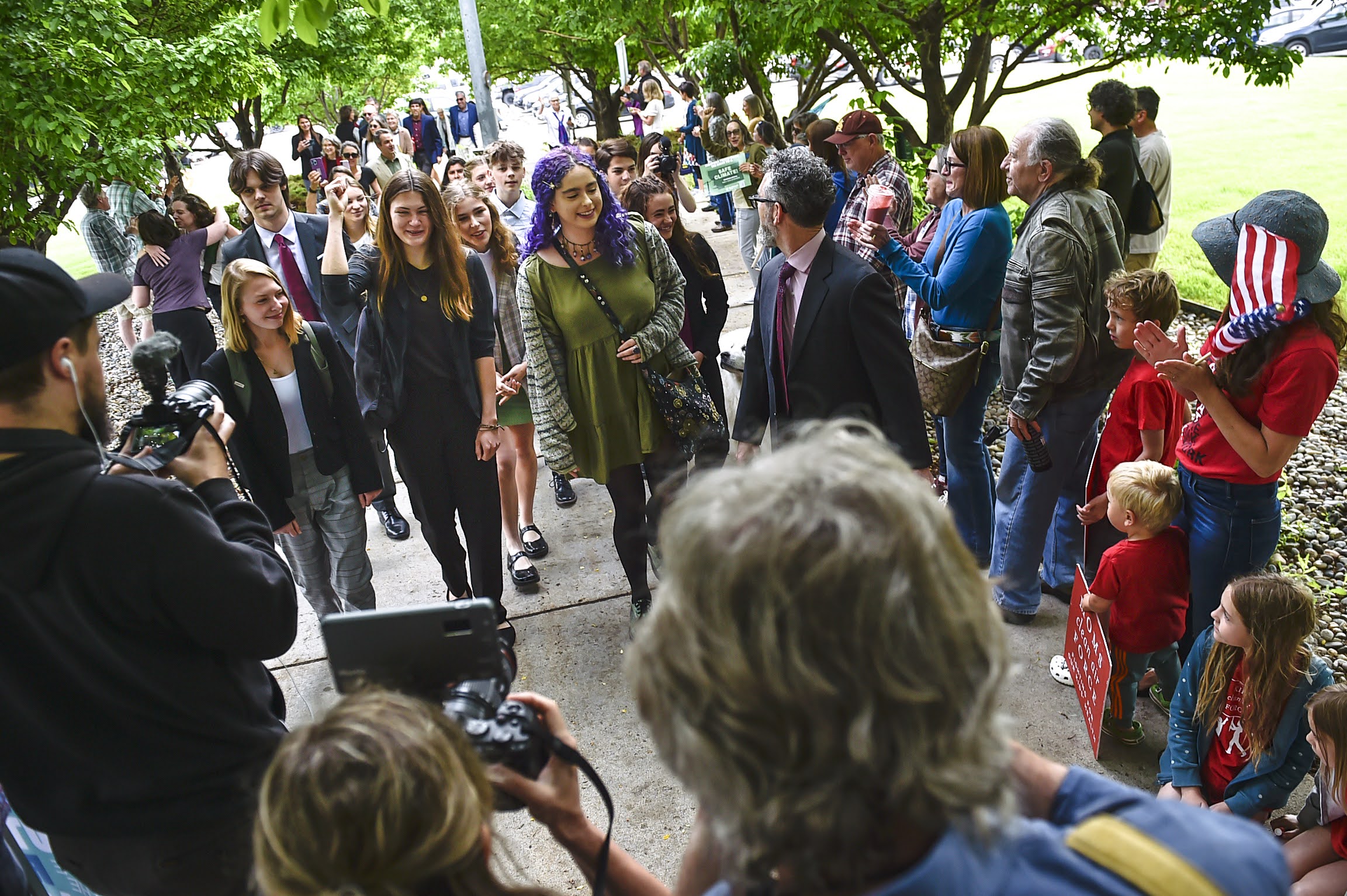Montana Looks to Back Trump in Federal Climate Lawsuit
Montana Attorney General Austin Knudsen moved to intervene in the Lighthiser v. Trump lawsuit challenging a trio of energy-related executive orders
By Amanda Eggert, Montana Free Press
After a multi-year fight against former President Joe Biden’s energy, climate and environmental policies, Montana Attorney General Austin Knudsen has corralled 18 other Republican attorneys general to back President Donald Trump and his energy policies.
Knudsen, who has led the Montana Department of Justice since 2021, is attempting to enter the judicial ring in a constitutional fight over three executive orders Trump issued earlier this year to “unleash America’s affordable and reliable energy and natural resources.” In May, 22 young Americans — including 10 involved in the Held v. Montana constitutional climate lawsuit the state Supreme Court decided in the plaintiffs’ favor late last year — filed a lawsuit to undo the executive orders.
The lead plaintiff is Eva Lighthiser, a 19-year-old Livingston resident. In the complaint, Lighthiser outlined how climate change-spurred events such as the Yellowstone River flooding of 2022 and summertime air quality declines tied to longer, more intense wildfire seasons have affected her health and the recreational traditions that are central to her way of life.
In a May press release about the lawsuit, Lighthiser said Trump is “waging war” on her and her co-plaintiffs, who are “fighting back with the Constitution.” More specifically, the plaintiffs argue in the 126-page lawsuit they filed in the U.S. District Court in Missoula that Trump is threatening their rights to life and liberty. They also invoke a separation-of-powers claim, a constitutional argument frequently cited in the hundreds of lawsuits that have arisen in response to Trump’s aggressive second-term agenda.
“President Trump’s EOs falsely claim an energy emergency, while the true emergency is that fossil fuel pollution is destroying the foundation of Plaintiffs’ lives,” Lighthiser and her co-plaintiffs contend in their request that judges toss the orders out. “Plaintiffs’ lives are presently harmed by the ‘unleashing’ of fossil fuel pollution, and their injuries will get worse as the directives continue to be implemented.”
In his motion to intervene, Knudsen argued that states like Montana are uniquely positioned to enter the legal arena to defend Trump’s energy agenda.
“The State of Montana has an interest in this case because it will directly impact the business done in the energy sector within its borders, as well as the employment implications and development implications involved that will impact so many of its citizens,” the filing reads. “Only the State Intervenors have the capacity, competency, and incentives to represent their unique interests not shared by the Federal Defendants.”
Wyoming, Idaho, South Dakota, Utah, Texas and the territory of Guam have signed on to Montana’s lawsuit. As of July 11, no orders have been issued regarding the motion to intervene, and no other parties have sought to become involved in the Lighthiser v. Trump lawsuit.
In a statement about Montana’s bid to join the litigation, Our Children’s Trust argued that fear is motivating the red states’ move to intervene. Over the last decade and a half, the Oregon-based nonprofit has filed dozens of lawsuits to force the government to act on climate change.
“Since President Trump returned to office, over 450 lawsuits have been filed challenging executive orders or the agency actions taken to carry them out. Out of all of those cases, only one has triggered a coalition of 19 states and a U.S. territory to intervene — this one. That speaks volumes,” Our Children’s Trust Chief Legal Counsel Julia Olson said in the press release. “Their intervention confirms what we already know: this constitutional rights case is vitally important, urgent, and it is exposing unlawful policies they are desperate to defend.”
It’s not just the plaintiffs who will be familiar to those who followed the Held v. Montana lawsuit; many of the attorneys representing the plaintiffs and the state squared off in state courts last year.
Both sides would likely agree that the Treasure State is a fitting backdrop for a fight over energy development: Montana has an abundance of the types of resources — coal, natural gas, copper and rare earth elements — that the White House is set on extracting.
A hearing regarding the federal government’s request to dismiss the lawsuit — and for the plaintiffs’ call for a stay of the executive orders at issue while the court parses plaintiffs’ claims — is set for Sept. 16 and 17 in Missoula. U.S. District Court Judge Dana Christensen will preside.
This story originally appeared in the Montana Free Press, which can be found online at montanafreepress.org.